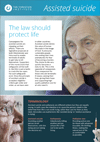A new centre has opened for storing umbilical cord blood, a source of stem cells that has been championed by pro-life groups.
The Anthony Nolan Trust, a leukaemia charity, aims to store 50,000 cord blood donations at its new centre based at Nottingham Trent University.
The new centre has been welcomed by parents of children who have been successfully treated with donated cord blood, like Eva Winston-Hart. Four-year-old Eva was diagnosed with a rare form of leukaemia in 2006. She recovered after being treated with cord blood donated in the US.
Umbilical cord blood is usually discarded after a baby is born, but if collected it has great potential for treating life-threatening conditions such as leukaemia, sickle-cell diseases, and immune deficiencies.
This is because it is a rich source of stem cells. These are cells at an early stage of development, which retain the potential to turn into many different types of cell. Umbilical cord blood is an ethical alternative to human embryos as a source for stem cells.
The new centre was opened by the Secretary of State for Health, Alan Johnson, who said: “The complex will provide a lifeline for thousands; become a goldmine for researchers; and reinforce the UK’s role as a centre of excellence.”
Dr Steve McEwan, the charity’s Chief Executive, added: “The beauty of this new programme will not only be to save the lives of hundreds more patients but also provide researchers the opportunity to develop innovative new treatments using cord blood.”
The potential of umbilical cord blood as a source of stem cells both for research and medical treatment was emphasised during the debates on the Human Fertilisation and Embryology Bill earlier this year.
So far, more than 70 treatments have been developed using stem cells taken from umbilical cords and other ethical sources. Embryonic stem cell research has still failed to yield any medical treatments.
The embryos Bill is expected to pass through its final stages in the House of Commons in the coming months.


